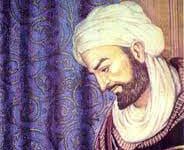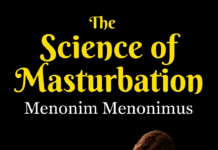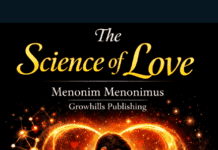The Art of Happiness | Dalai Lama | A Review
The Art of Happiness Dalai Lama A Review
The Art of Happiness by Dalai Lama-A Review
“The Art of Happiness” is a deeply insightful and thought-provoking book that offers readers a unique perspective on finding happiness and inner peace. Co-authored by the 14th Dalai Lama, Tenzin Gyatso, and psychiatrist Howard C. Cutler, the book combines Eastern philosophy and Western psychology to explore the nature of happiness and its attainability.
One of the book’s main strengths lies in the collaboration between the Dalai Lama and Cutler. Their dialogue provides readers with a rich blend of spiritual wisdom and psychological expertise. By weaving together Buddhist teachings and scientific research, the book offers a well-rounded and comprehensive exploration of happiness from both perspectives.
Throughout “The Art of Happiness,” the Dalai Lama emphasizes the importance of cultivating inner peace and compassion. He argues that genuine happiness comes not from external circumstances but from the cultivation of a positive mind and a compassionate heart. By focusing on inner qualities like love, kindness, and empathy, individuals can create a lasting sense of joy and contentment.
Another key aspect of the book is its exploration of the nature of suffering and the ways to overcome it. The Dalai Lama shares profound insights into the human mind and its tendency to create unnecessary suffering through attachment, desire, and negative emotions. By understanding the root causes of suffering, readers can begin to free themselves from its grip and find greater happiness.
“The Art of Happiness” also delves into the concept of mindfulness and the practice of meditation. The Dalai Lama discusses the benefits of mindfulness in cultivating self-awareness and emotional resilience. Cutler adds scientific evidence supporting the positive effects of meditation on mental well-being, making the book more relatable to Western readers.
One of the book’s most significant contributions is its exploration of the human capacity for change and growth. The Dalai Lama emphasizes that happiness is not a fixed state but a skill that can be developed through intentional effort and practice. By taking responsibility for one’s own happiness and making positive choices, individuals can transform their lives and relationships.
Furthermore, the book addresses the importance of cultivating a sense of purpose and meaningful connections with others. The Dalai Lama argues that happiness is interconnected with our sense of community and our ability to contribute positively to the well-being of others.
Critics of the book argue that some concepts may appear abstract or challenging to grasp, particularly for readers unfamiliar with Eastern philosophy or meditation practices. Additionally, individual preferences for spiritual or self-help books may vary, leading to differing opinions about the book’s overall impact.
In conclusion, “The Art of Happiness” by the Dalai Lama and Howard C. Cutler is a profound and enlightening exploration of happiness, compassion, and inner peace. The book’s combination of Eastern wisdom and Western science provides readers with valuable insights into the nature of happiness and the path to living a more fulfilled and contented life. Through its teachings on mindfulness, compassion, and personal growth, “The Art of Happiness” remains a timeless and essential guide for those seeking genuine happiness and spiritual well-being. 0 0 0.
The Art of Happiness Dalai Lama A Review
N.B. The article ‘The Art of Happiness Dalai Lama A Review’ originally belongs to the book ‘Reviews of Selected Motivational Books‘ by Menonim Menonimus.
Books of Literary Criticism by M. Menonimus:
- World Short Story Criticism
- World Poetry Criticism
- World Drama Criticism
- World Novel Criticism
- World Essay Criticism
- Indian English Poetry Criticism
- Indian English Poets and Poetry Chief Features
- Emily Dickinson’s Poetry-A Thematic Study
- Walt Whitman’s Poetry-A Thematic Study
- Critical Essays on English Poetry
- Tawfiq al-Hakim’s Novel: Return of the Spirit-An Analytical Study
- Tawfiq al-Hakim’s Novel: ‘Yawmiyyat Naib Fil Arayaf’-An Analytical Study
- Analytical Studies of Some Arabic Short Stories
- A Brief History of Arabic Literature: Pre-Islamic Period (500 AD-622 AD)
- A Brief History of Arabic Literature: Early Islamic Period (622 AD-661 AD)
- Reviews on William Shakespeare’s Works
- Reviews of Charles Dickens’ Works
- Reviews of John Milton’s Literary Works
- Reviews of Some Iconic Travelogues
- Shakespeare’s Sonnets-Critical Studies
- Analytical Studies of Selected Poems of Sarojini Naidu
- Analytical Studies of Selected Poems of Rabindranath Tagore
- Analytical Studies of Selected Indian English Poems
- Reviews of Selected Motivational Books …
Additional Searches:
- The Best Motivational Books
- Motivational Books
- The Rich Dad Poor Dad
- You Can Win
- Awaken the Giant Within by Tony Robbins
- Think and Grow Rich by Napoleon Hill
- Motivational Quotes
- The 7 Habits of Highly Effective People by Stephen R. Covey
- The Power of Positive Thinking











